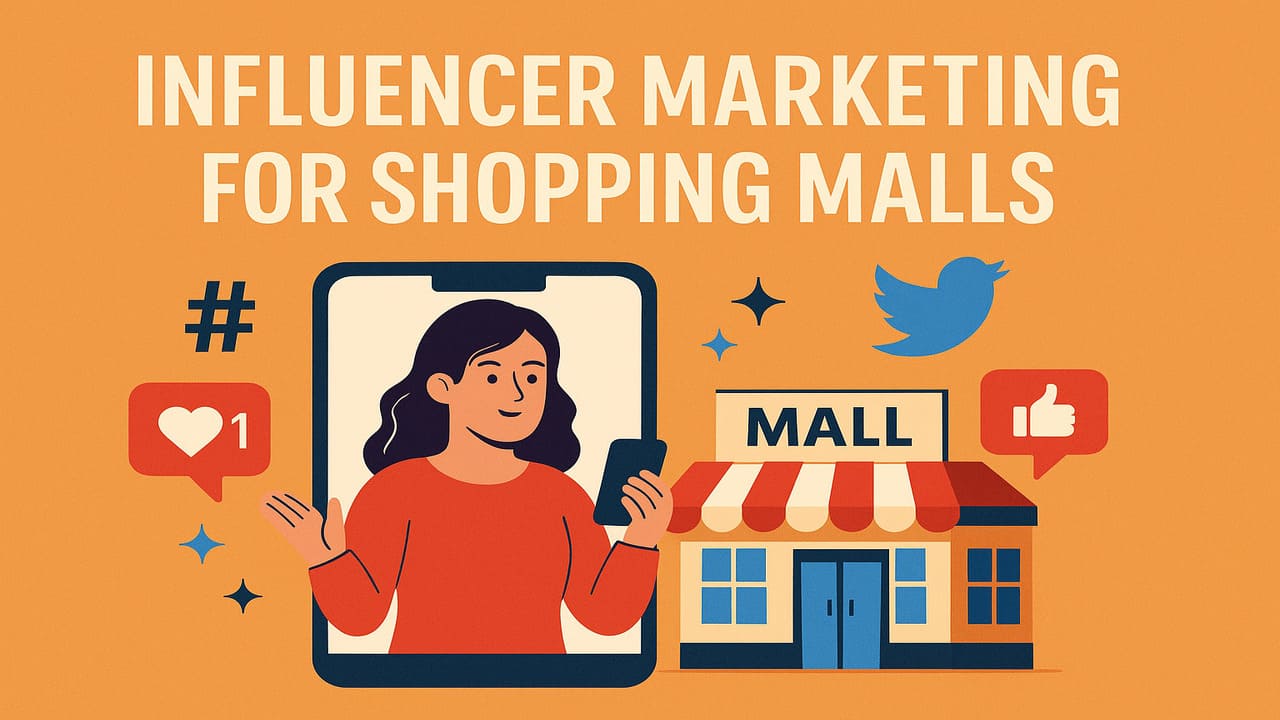
The Berkshire Mall – To keep pace with changing consumer behavior, malls must evolve their marketing strategies. Among the many options, influencer marketing has emerged as one of the most powerful tools for attracting new visitors and building stronger brand loyalty.
Unlike traditional advertising, influencer marketing leverages the trust and authenticity influencers have built with their followers. Consumers today are more likely to trust recommendations from real people—especially influencers they admire—over polished ads. For malls, partnering with influencers means reaching audiences in a more organic and engaging way, whether it’s through Instagram reels, TikTok videos, or Twitter campaigns.
Not every influencer is a good fit for a shopping mall campaign. The key is to identify those who align closely with your audience demographics and the lifestyle you want to promote. A mall targeting young families, for example, might benefit from working with parenting bloggers or local mom influencers. A fashion-forward mall, on the other hand, would gain more traction with style and lifestyle influencers.
When choosing influencers, malls should look beyond follower count. Micro-influencers with smaller audiences often deliver higher engagement rates and stronger connections with their communities. Their recommendations can carry more weight than those of mega-celebrities, particularly when promoting local events or new store openings. Relevance, authenticity, and audience engagement are the most important metrics to evaluate.
Read More : Boost Sales with Coupons and Promotional Codes on Shopping Malls
Influencer marketing works best when influencers create content that feels genuine and exciting to their audiences. Shopping malls can collaborate with influencers in several ways:
By diversifying the ways influencers engage with mall audiences, shopping centers can ensure their campaigns stay dynamic and relevant.
The impact of influencer marketing can be seen in both tangible and intangible ways. On one hand, it helps boost foot traffic during specific events, resulting in higher sales for tenants. On the other, it strengthens the mall’s reputation as a vibrant, modern destination that understands and engages with its community.
Some of the most notable benefits include:
These benefits demonstrate why influencer marketing is not just a trend but a vital tool for modern shopping mall strategies.
While the potential is enormous, influencer marketing for malls is not without its challenges. One common issue is measuring return on investment (ROI). Unlike traditional ads, influencer campaigns can have results that are harder to track, especially when the goal is to build brand awareness rather than immediate sales.
To overcome these challenges, malls should follow a few best practices:
By addressing challenges proactively, shopping malls can maximize the effectiveness of their influencer partnerships.
Also Read : Shocking Move: Amazon Spends Over $1 Billion on Employees Instead of Robots
Instead of ending with a conclusion, let’s explore what the future might hold for influencer marketing in shopping malls. Trends suggest that influencer marketing will continue to evolve, integrating new technologies and formats. Live shopping events on social platforms, where influencers showcase products in real time, are becoming increasingly popular. Malls could adopt this trend by hosting hybrid online-offline events with influencers guiding audiences through in-store experiences.
Additionally, the rise of nano-influencers individuals with highly engaged niche audiences—could reshape how malls connect with local communities. Rather than chasing the biggest names, malls might focus more on influencers who bring authenticity and grassroots-level engagement. Another emerging possibility is the use of AI tools to analyze influencer data, helping malls select partners with greater precision.
With these developments on the horizon, shopping malls that embrace influencer marketing today will be better positioned to thrive in the retail environment of tomorrow.
This Article About Influencer Marketing Written by: Rahma Azhari | Editor: Micheal Halim
Information Source: walls.io